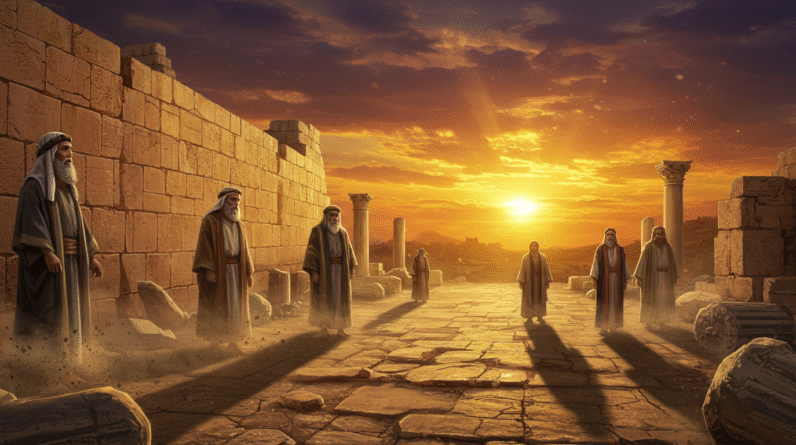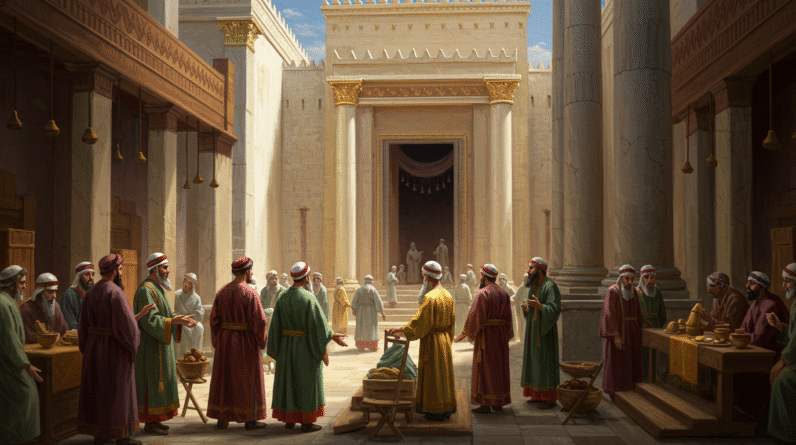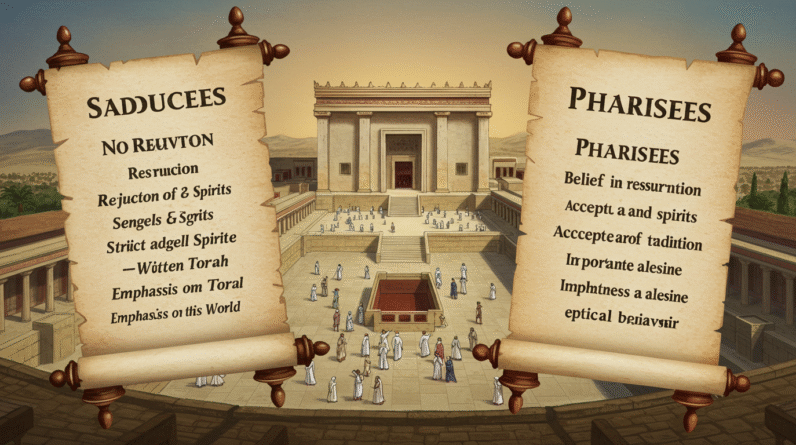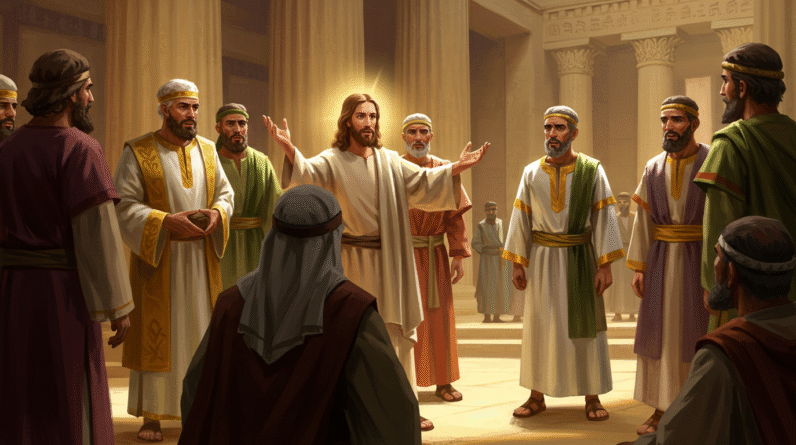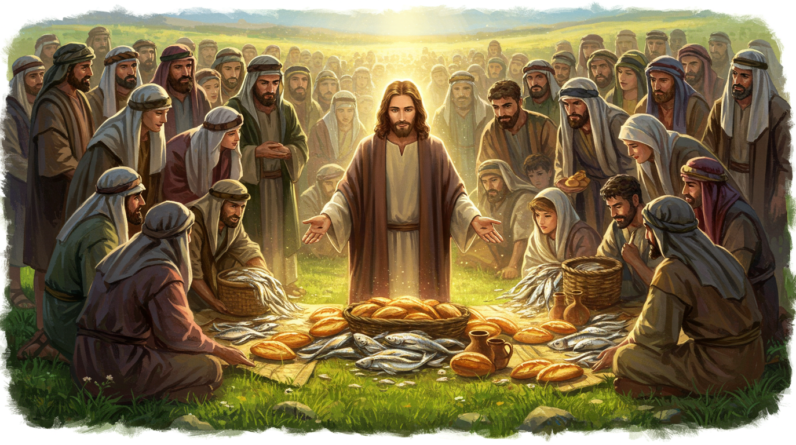Discover the timeless wisdom of the Twelve Tribes of Israel. Uncover stories of faith, destiny, and resilience, reflecting on their relevance in today’s world.
Exploring the Twelve Tribes of Israel in Genesis and Numbers
In a world where ancient stories still echo their wisdom into our modern lives, the tale of the Twelve Tribes of Israel stands tall, emanating lessons about family, destiny, and divine purpose. As you delve into this rich narrative, you’ll find yourself transported to a land where faith and history weave together, creating a tapestry of profound significance that continues to inspire countless individuals today.
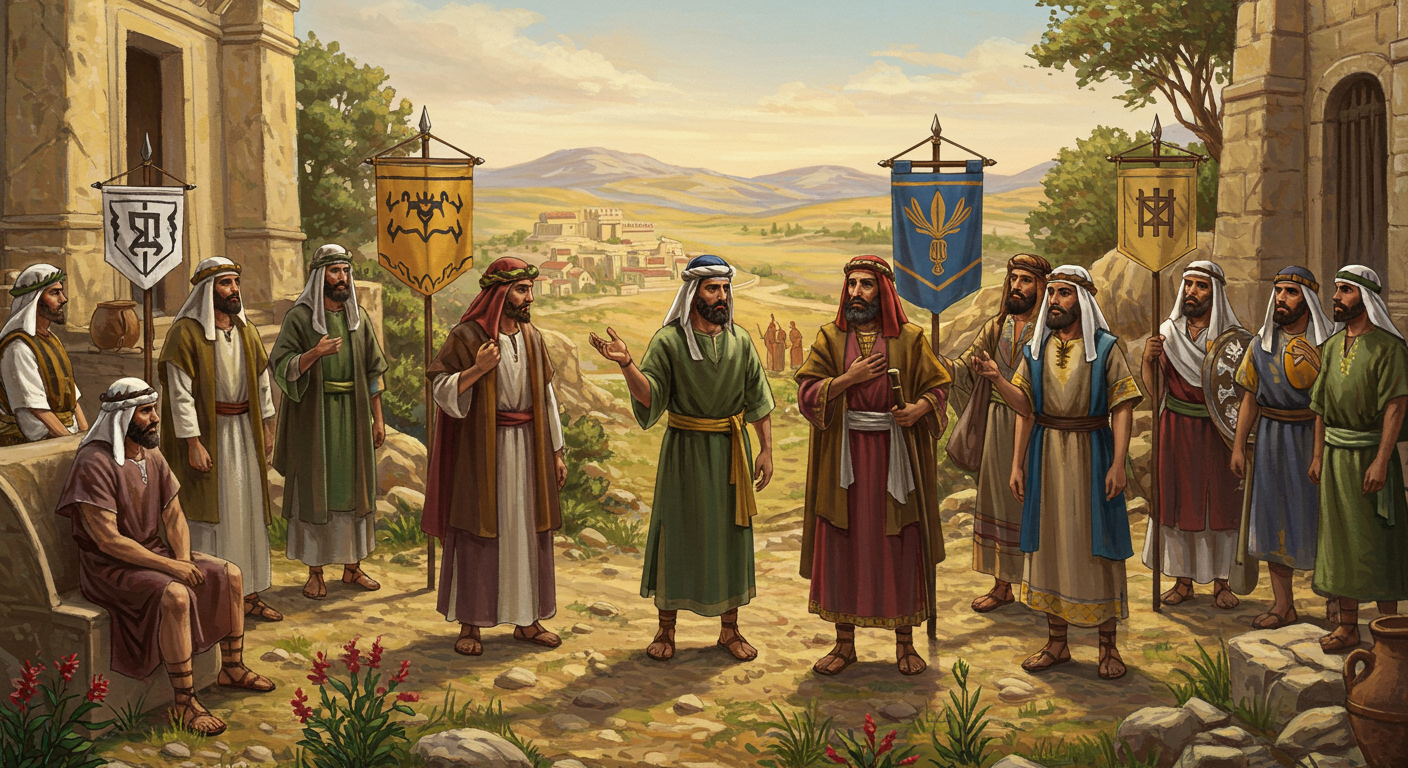
Introduction to the Tribes
Imagine being part of a family whose history is etched into the sacred texts of one of the world’s most studied books. This is the reality for the twelve sons of Jacob, whose destinies paved the way for the formation of the nation of Israel. Each tribe carries its own legacy, skillfully painted across the chapters of Genesis and Numbers. It’s here, in the very first book of the Bible, that you’ll discover the origins of these tribes, with their stories wrapping around the central theme of a chosen people destined to fulfill God’s promises.
Jacob’s Sons: The Foundation of a Nation
The Birth of the Tribes
In Genesis 49, Jacob, approaching the end of his life, gathers his sons to bestow prophetic blessings upon them. You can almost picture the scene, filled with palpable tension as each son steps forward, anticipating his father’s words. It is a moment of legacy, where words become the harbingers of destiny. Jacob’s blessings lay the groundwork for the tribes’ futures—marking them forever as integral to God’s plan for His people.
The Importance of the Blessings
Jacob’s prophetic blessings not only shaped the identities of his sons but also illustrated the distinct characteristics and destinies for each tribe. These blessings encapsulate promises of prosperity, strength, and leadership, while also hinting at challenges some tribes would face. You can see how these words act as seeds, later producing fruit that would define the history and the role of each tribe within the nation of Israel.
Reuben: The Firstborn
Key Reference(s): Genesis 49:3-4
Reuben’s Story
Reuben, as Jacob’s firstborn, should have been set to inherit the leadership of the tribes. However, his impulsive action cost him his birthright. Reuben’s story is a cautionary tale, as his father denounces his unstable as water nature, stripping Reuben of his preeminent standing. This incident is a reminder of how a single moment’s decision can alter one’s path and affect relationships for generations.
Lessons from Reuben’s Life
Reuben’s life teaches the importance of self-control and the weight of responsibility that comes with leadership. His story also highlights the consequences of failing moral judgment, serving as a caution against letting fleeting desires dictate one’s actions. These lessons are universal, resonating with you today as you navigate decisions in your personal and professional life.
Connection to Today’s World
In a world filled with temptations and short-lived gratification, Reuben’s story prompts you to consider the long-term consequences of your choices. It urges reflection on stability and integrity in your daily actions, suggesting that true leadership springs from consistency and moral strength.
Key Bible Verse
“Reuben, you are my firstborn, my might, the first sign of my strength, excelling in honor, excelling in power. Turbulent as the waters, you will no longer excel.” Genesis 49:3-4
This verse poignantly captures the dichotomy of Reuben’s potential versus his reality. It serves as a reminder of the importance of aligning one’s actions with their responsibilities.
Thought-Provoking Question
Have you ever reconsidered a decision after realizing the far-reaching impact it might have on your life and those around you?
Simeon and Levi: Brothers in Arms
Key Reference(s): Genesis 49:5-7
Their Story
Simeon and Levi share a violent history, marked by their ruthless attack on Shechem to avenge their sister Dinah’s honor. Jacob’s blessing reflects his displeasure at their anger and violence, predicting that their descendants would be scattered in Israel.
Lessons from Simeon and Levi’s Life
From their story, you learn about the destructive nature of unchecked anger and its potential to lead to violence and division. It emphasizes the need for restraint and mediation in conflict, advocating for a thoughtful approach to justice and honor.
Connection to Today’s World
In contemporary society, where conflict resolution is essential, Simeon and Levi’s story encourages you to harness emotions constructively. It cautions against allowing anger to drive your actions and illustrates the benefits of negotiation and understanding.
Key Bible Verse
“Simeon and Levi are brothers—their swords are weapons of violence. Let me not enter their council, let me not join their assembly, for they have killed men in their anger…” Genesis 49:5-7
This verse powerfully encapsulates the consequences of their actions, serving as a timeless warning against the folly of violence.
Thought-Provoking Question
How do you channel your emotions, especially anger, into constructive outcomes?
Judah: The Leader
Key Reference(s): Genesis 49:8-12
Judah’s Story
Judah emerges as a central figure among his brothers, marked by his confession and leadership in the Joseph saga. Jacob blesses him with leadership and kingship, foreshadowing the royal lineage that would eventually lead to King David and, as Christians believe, ultimately to Jesus Christ.
Lessons from Judah’s Life
Judah’s life is a testament to redemption and leadership born of humility and responsibility. The story of Judah inspires you to rise above past failures and to embrace leadership roles with integrity and foresight. His narrative underscores the power of taking responsibility and exhibiting genuine change.
Connection to Today’s World
Judah’s transformation reminds you that leadership comes through service and accountability. In a world seeking authentic leaders, his story inspires the belief that true leadership is not about perfection but about the courage to change.
Key Bible Verse
“The scepter will not depart from Judah, nor the ruler’s staff from between his feet…” Genesis 49:10
This passage signifies Judah’s legacy and foreshadows the establishment of a lasting and noble lineage.
Thought-Provoking Question
Are you willing to embrace humility and responsibility to become a transformative leader in your community?
Joseph: The Dreamer
Key Reference(s): Genesis 49:22-26
Joseph’s Story
Joseph’s story is a compelling blend of visions, trials, and ultimately, triumph. Betrayed by his brothers and sold into slavery, he rises against all odds to become a leader in Egypt. His lifesaving wisdom eventually reconciles his family, cementing his legacy.
Lessons from Joseph’s Life
Joseph’s journey offers powerful insights into the nature of forgiveness, resilience, and divine providence. These lessons reflect the enduring power of dreams and encourage persistence amidst adversity. His life story reminds you that true victory lies not in seeking revenge but in forgiveness.
Connection to Today’s World
Joseph’s resilience and ability to forgive illustrate strength that transcends circumstance. In a competitive world, his story resonates with the enduring belief in vision and perseverance, urging individuals to stay the course even when faced with life’s harshest trials.
Key Bible Verse
“Joseph is a fruitful vine, a fruitful vine near a spring, whose branches climb over a wall.” Genesis 49:22
This verse eloquently illustrates Joseph’s prosperity and the reach of his influence—a testament to his enduring legacy.
Thought-Provoking Question
In times of hardship, do you hold onto your dreams with the determination and faith exhibited by Joseph?
Continuing the Legacy: Numbers and Beyond
The Census of the Tribes
Numbers 1:1-54 records the census of the tribes, highlighting their role in the organization of Israel as they prepared for their journey to the Promised Land. Let us delve into the characteristics and blessings of Dan, Naphtali, Gad, Asher, Issachar, Zebulun, and Benjamin.
Dan
Jacob’s blessing for Dan (Genesis 49:16-17) declares that he will “provide justice for his people,” comparing him to a serpent by the roadside that strikes a horse’s heels. This reflects Dan’s role as a tribe of judgment and cunning. The tribe of Dan was known for its military prowess but also for its struggles with idolatry (Judges 18). Despite challenges, Dan’s legacy points to the importance of discernment and vigilance in faith.
Naphtali
In Genesis 49:21, Naphtali is described as a “doe set free that bears beautiful fawns.” This imagery highlights the tribe’s agility, grace, and ability to flourish. Located in a fertile region of northern Israel, Naphtali was known for its resilience and contributions to the arts and culture. The blessings over Naphtali remind us of the freedom and creativity that come with living in alignment with God’s purposes.
Gad
Jacob’s blessing for Gad (Genesis 49:19) foretells that a troop will attack him, but he will attack back at their heels. This reflects the tribe’s warrior nature and resilience in battle. Settling east of the Jordan River, Gad often found itself on the frontlines, defending Israel against external threats. Gad’s story encourages believers to stand firm and persevere in the face of adversity.
Asher
In Genesis 49:20, Jacob declares that Asher’s food will be rich, and he will provide delicacies fit for a king. The tribe of Asher inherited a region along the fertile coastal plains, known for its olive oil production and abundance. Asher’s blessings emphasize God’s provision and the importance of using blessings to enrich others’ lives.
Issachar
Jacob’s words for Issachar (Genesis 49:14-15) depict him as a strong donkey lying down among the sheep pens, willing to submit to forced labor for the sake of rest and prosperity. This reflects Issachar’s industrious nature and preference for stability. The tribe’s wisdom in understanding the times (1 Chronicles 12:32) became a hallmark of their legacy, teaching the value of discernment and diligence.
Zebulun
Jacob’s blessing (Genesis 49:13) states that Zebulun will live by the seashore and become a haven for ships. This tribe’s territory bordered the Mediterranean, and they engaged in trade and commerce. Zebulun’s role demonstrates the importance of economic and cultural contributions to the community of faith.
Benjamin
Jacob’s blessing for Benjamin (Genesis 49:27) describes him as a ravenous wolf, devouring prey in the morning and dividing plunder at night. Benjamin’s tribe was known for its fierce warriors and produced significant leaders, including King Saul and the Apostle Paul. Their story highlights the courage and the transformative power of God’s grace.
The Role of the Tribes in the Wilderness
In the wilderness, the tribes play a crucial role, each contributing to the survival and identity of the nation. Their journeys together reveal a picture of unity amidst diversity, a mosaic of people bound by mutual faith and divine purpose.
Conclusion: The Enduring Legacy
The stories of the Twelve Tribes of Israel are more than a historical account. They weave together themes of faith, failure, redemption, and unity to create a narrative that resonates deeply with your quest for meaning and identity today. Each tribe, with its unique experiences and prophetic blessings, leaves behind a legacy that transcends time—a legacy that invites you to explore and apply these ancient teachings in your own life.
The Twelve Tribes of Israel reflect a diverse and dynamic heritage, each contributing uniquely to the nation’s identity. From the justice of Dan to the provision of Asher and the bravery of Benjamin, these tribes embody qualities that resonate with God’s plans for His people. They remind us of the unity and purpose of serving God as a collective body.
The Twelve Tribes remind you that each decision, each act of courage or failure, contributes to a broader narrative in which you play an integral part. As you reflect on their stories, consider the roles they play in shaping your life’s journey.


